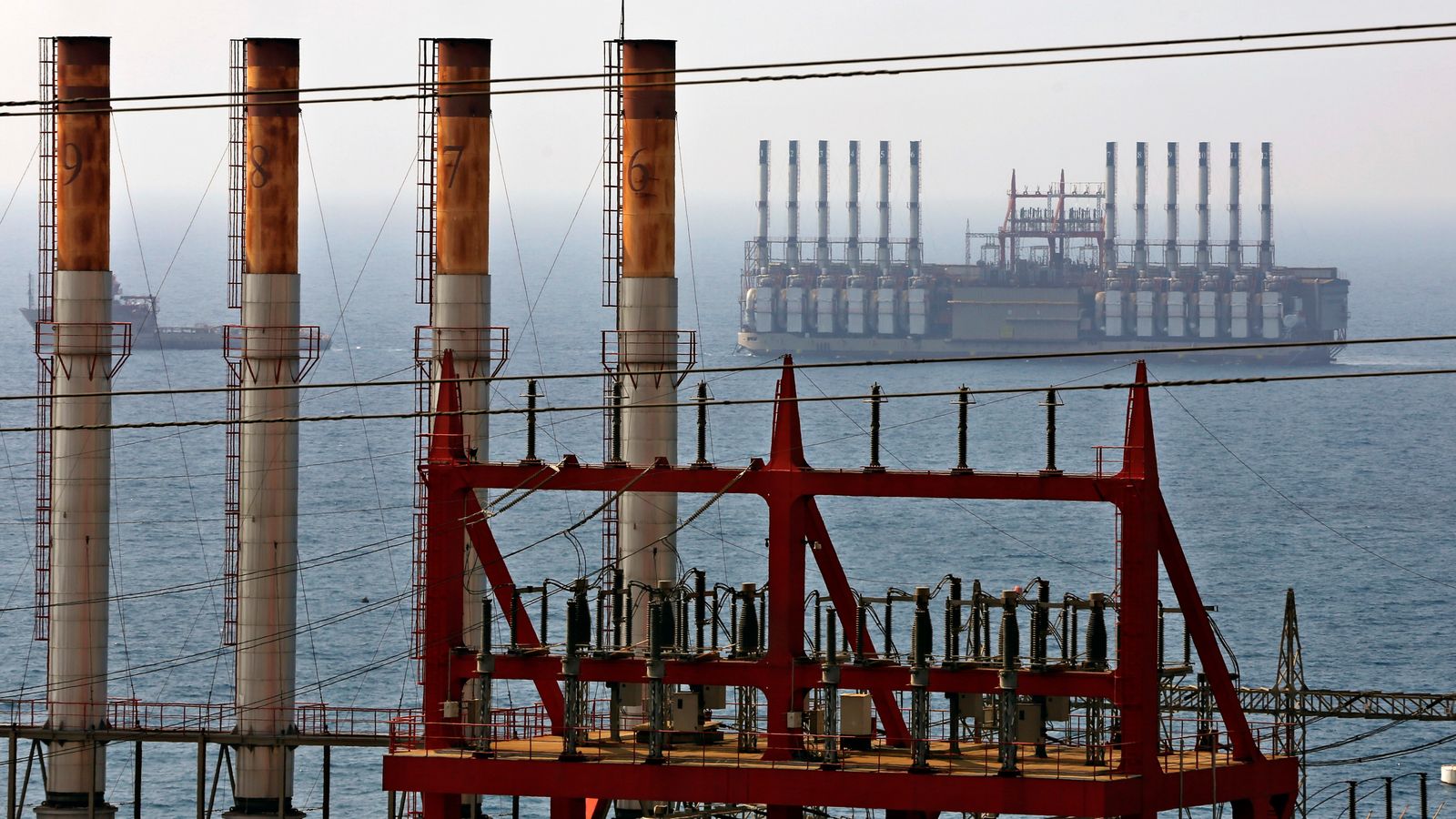Lebanon has lost a quarter of its electricity after a row with an energy supplier over what the firm says are outstanding debts.
Turkish company Karpowership said payments have been overdue for around a year-and-a-half.
Reuters news agency reported the firm was owed more than $100m (£71m), citing a source.
Karpowership is said to have shut off its generators around 8am local time on Friday.
The company said in a statement: “For 18 months, we have been exceedingly flexible with the state, continually supplying power without payment or a payment plan, because the country was already facing very hard times.
“However, no company can operate in an environment with such direct and undue risk.”
The firm provides around 370 megawatts (MW) through two electricity barges anchored off the Lebanese coast since 2013.
Its decision – which is expected to reduce electricity by four hours a day – comes after a Lebanese prosecutor threatened this month to seize the barges and fine the firm after Lebanese TV channel al-Jadeed reported corruption allegations over the power contract.
Karpowership, part of Karadeniz, has denied the accusations.
Lebanon’s finance ministry said this week it had received a letter from the Turkish firm with a warning, citing a lawyer saying the country could face “total darkness” if the barges shut off power.
It is a fresh blow for the crisis-hit Mediterranean country, which suffers regular blackouts forcing many to rely on private generators.
And it comes as Lebanon‘s Central Bank and government are considering ending fuel subsidies – raising fears of a sharp spike in the price of gas and diesel.
The country remains in political turmoil with a temporary government following last August’s catastrophic Beirut explosion.
Residents in the capital organise their daily lives around power cuts which dictate when they can turn on air conditioning in the summer and heating during the winter.
Outside the capital, outages can last up to 12 hours.
Successive governments have failed to reach a permanent solution for chronic electricity shortages, largely blamed on profiteering, corruption and lack of political will.






















